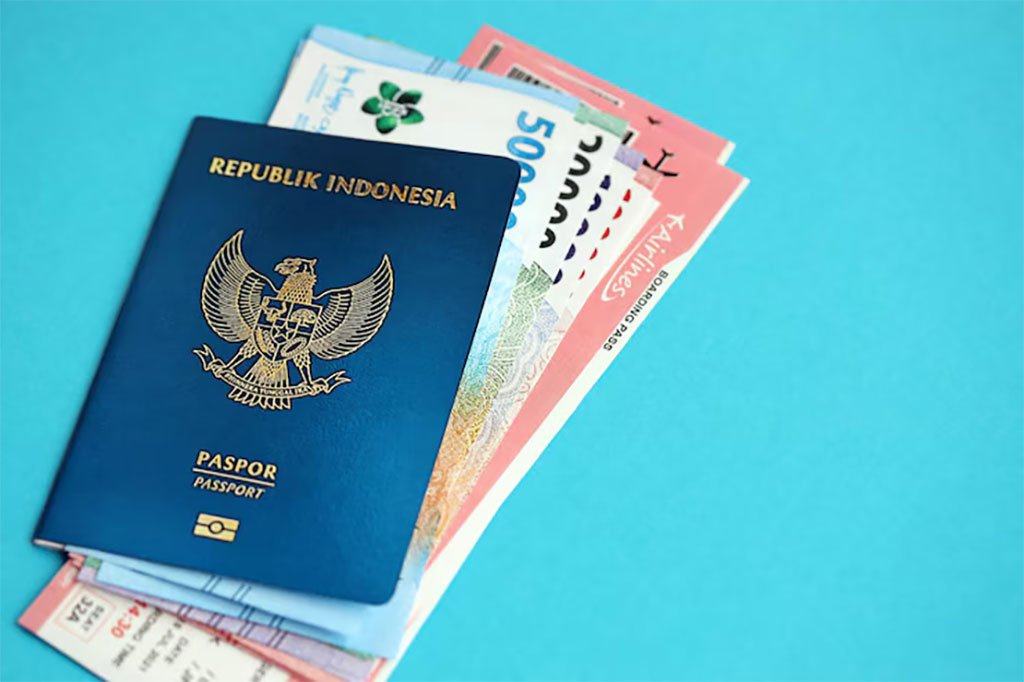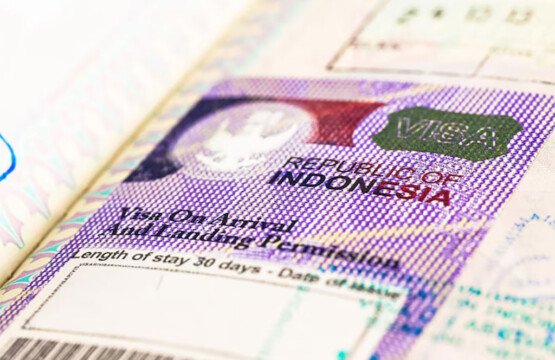Bali has long captivated the imagination of travelers worldwide. With its lush rice terraces, ancient temples, pristine beaches, and vibrant culture, it’s no wonder millions flock to this Indonesian paradise every year. But before you start dreaming about sipping coconut water in Ubud or catching waves in Uluwatu, there’s one vital thing you must sort out: your visa.
Traveling to Bali involves more than just packing your bags and booking a flight. To ensure a smooth entry and stay, it’s essential to understand the visa process. While Indonesia is known for its tourism-friendly policies, the rules have specific conditions and requirements depending on your nationality, length of stay, and purpose of visit.
Whether you’re going for a short vacation, a yoga retreat, remote work, or an extended stay, here are the 5 essential visa requirements every traveler should know before heading to Bali.
🛂 1. Visa Exemption (Free Entry)
For tourists looking to visit Bali for a short stay, good news: Indonesia offers visa-free entry for citizens of several countries. This visa exemption is intended for tourism and does not allow for extensions or conversion into other visa types.
✅ Key Features:
- Duration: Maximum 30 days
- Cost: Free
- Extension: Not available
- Purpose: Tourism only
🌍 Eligible Countries Include:
Australia, United States, United Kingdom, Canada, Germany, Japan, South Korea, and many others.
Before your trip, it’s crucial to check with the nearest Indonesian embassy or official immigration website for an updated list of visa-exempt countries as these can change.
🚫 Limitations:
- You cannot work or conduct business.
- You must leave the country before the 30 days end.
- Overstaying incurs fines (IDR 1,000,000 per day as of 2024).
Visa-free entry is great for quick getaways, but if you’re planning to stay longer or have other purposes like work or study, you’ll need to explore other visa options.
📝 2. Visa on Arrival (VOA)
If you need more flexibility or think you might want to extend your stay, Visa on Arrival (VOA) is your best option. Available at most major Indonesian airports, VOA allows travelers to enter Indonesia and then extend their stay for an additional 30 days.
✅ Key Features:
- Duration: 30 days, extendable once for another 30 days
- Cost: Approx. USD 35 (payable on arrival or online in advance)
- Extension: Yes, once (total 60 days)
- Where to Get It: Airport immigration counter or via the e-VOA online system
💻 e-VOA Option:
Indonesia now allows visitors to apply online for an e-VOA through the immigration portal. This makes it easier to skip lines at the airport.
✈️ Requirements:
- A passport valid for at least 6 months
- Proof of onward or return travel
- Credit card or method of payment for visa fee
- Accommodation details (sometimes requested)
The VOA is perfect for tourists, digital nomads testing the waters, or anyone needing more time than the visa exemption allows — without the complications of applying for a longer-term visa.
🖋️ 3. Visit Visa B211A (Social, Business, or Tourist)
For those planning to stay longer than 60 days, the Visit Visa B211A is a common choice. Often used by digital nomads, volunteers, or visitors with extended travel plans, this visa provides up to 180 days of stay (initial 60 days + extensions).
✅ Key Features:
- Initial duration: 60 days
- Extension: 2×60 days (total of 180 days possible)
- Cost: Around USD 50–70 for the visa, plus extension fees
- Purpose: Tourism, social visits, business meetings, etc.
🧾 Requirements:
- Sponsor letter from an individual or agency in Indonesia
- A valid passport (6+ months validity)
- Return/onward flight itinerary
- Financial proof (bank statements may be required)
- Health insurance covering your stay
You can apply via Indonesian embassies abroad or authorized visa agents. Many travelers prefer using agents to ease the process.
⚠️ Important Notes:
- You cannot work under this visa.
- The sponsor is legally responsible for your stay.
- Overstaying or misuse can result in fines, blacklisting, or deportation.
💼 4. Work and Business Visas
Planning to work in Bali, attend long-term business projects, or relocate for employment? You’ll need a proper work or business visa — not a tourist or visit visa.
👔 Types of Work-Related Visas:
- KITAS (Temporary Stay Permit): For those employed by Indonesian companies
- Business Visa (Single/Multiple Entry): For attending meetings, conferences, or professional visits
🛠️ Work KITAS:
- Requires sponsorship by an Indonesian employer
- Includes registration with Indonesia’s Manpower Department
- Allows stay up to 1 or 2 years, depending on contract
- Can be renewed and may lead to a KITAP (permanent stay)
💬 Business Visa (211):
- For non-income-generating business activities
- Valid for 60 days, extendable
- Requires a sponsor company
These visas take more time and paperwork but are essential if you’re conducting any activity beyond tourism. Always consult immigration or legal experts to ensure you’re on the right side of Indonesian regulations.
🌐 5. Digital Nomad & Remote Work Options
In the age of remote work, Bali has become a haven for digital nomads. Although there’s no official “digital nomad visa” (yet), many remote workers use the B211A visa or VOA to live and work legally — provided they earn their income from outside Indonesia.
💡 Important Considerations:
- You can work remotely, as long as your clients or employer are not based in Indonesia.
- You’re expected to pay taxes in your country of residence, not Indonesia.
- If caught working for local clients or companies without the proper visa, you risk deportation or blacklisting.
Indonesia has discussed launching a formal Digital Nomad Visa, which would allow stays of up to 5 years without paying local taxes — but as of mid-2025, it’s still pending implementation.
🧘♀️ Co-working in Paradise:
Bali offers world-class co-working spaces in places like Canggu, Ubud, and Seminyak. These hubs come with fast Wi-Fi, networking events, and wellness perks — a dream for location-independent professionals.
🧳 General Entry Requirements
Regardless of the visa type, all travelers entering Indonesia must meet the following:
✅ Essentials:
- Passport validity: Minimum 6 months
- Return/onward flight: Often requested at check-in or immigration
- Accommodation details: Required for some visa types
- Travel insurance: Highly recommended, sometimes required
- Vaccination: As of recent years, COVID-19 vaccine proof may be requested
Always double-check immigration policies before your departure as regulations are subject to change with little notice.
🤔 Which Visa Should You Choose?
| Purpose of Visit |
Duration |
Recommended Visa |
| Short vacation (≤30 days) |
30 days |
Visa Exemption |
| Vacation + extension |
30–60 days |
Visa on Arrival |
| Extended travel, volunteering, remote work |
60–180 days |
B211A Visit Visa |
| Business trip |
Short-term |
Business Visa |
| Paid employment |
Long-term |
Work KITAS |
Your visa choice should align with your goals. Traveling under the wrong visa can lead to fines, denial of entry, or even deportation. When in doubt, consult a visa agent or Indonesian embassy for guidance.
✨ Final Tips for a Smooth Arrival in Bali
- Have printed copies of your flight tickets, accommodation, and visa (if applicable).
- Be respectful and courteous to immigration officers — attitude matters.
- Avoid overstaying — it’s taken seriously and could affect future entries.
- Keep visa records handy throughout your stay, especially during police checks or while extending.
- Use reputable visa agents if you need help with extensions or special permits.
🎉 Conclusion
With its breathtaking landscapes and welcoming spirit, Bali is an unforgettable destination. But like every great journey, it starts with preparation — and that begins with understanding your visa requirements. Whether you’re chasing waterfalls in Munduk, surfing in Kuta, or writing your novel in Ubud cafés, getting the right visa will ensure your time in Bali is smooth, legal, and worry-free.
Take the time to choose the right visa for your trip, and you’ll be rewarded with the freedom to enjoy this tropical paradise to the fullest.










Join The Discussion